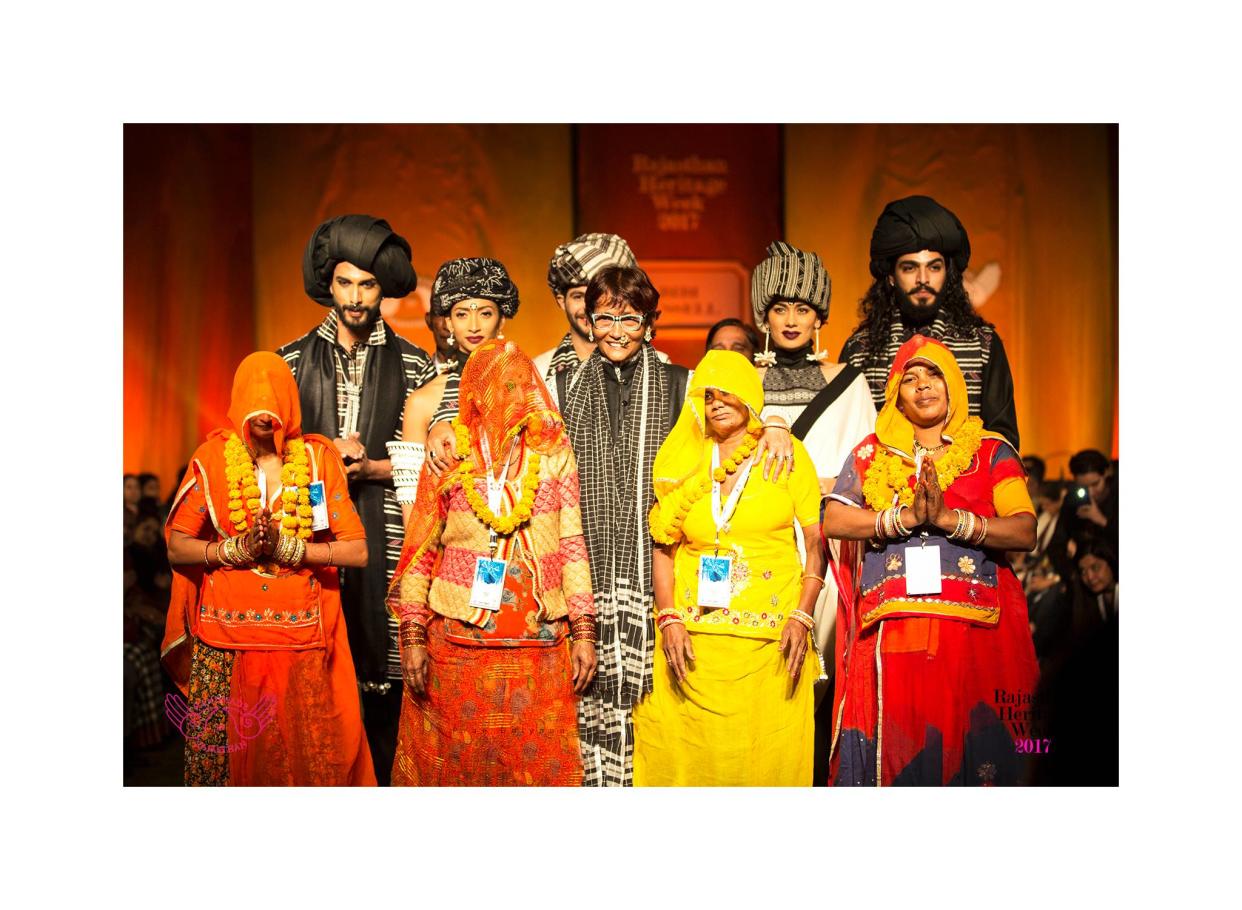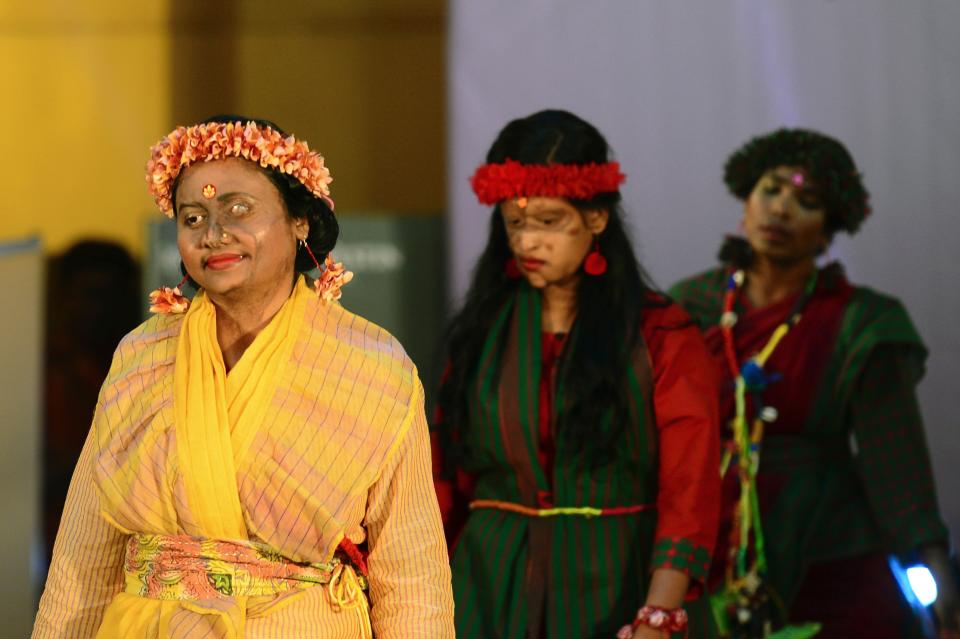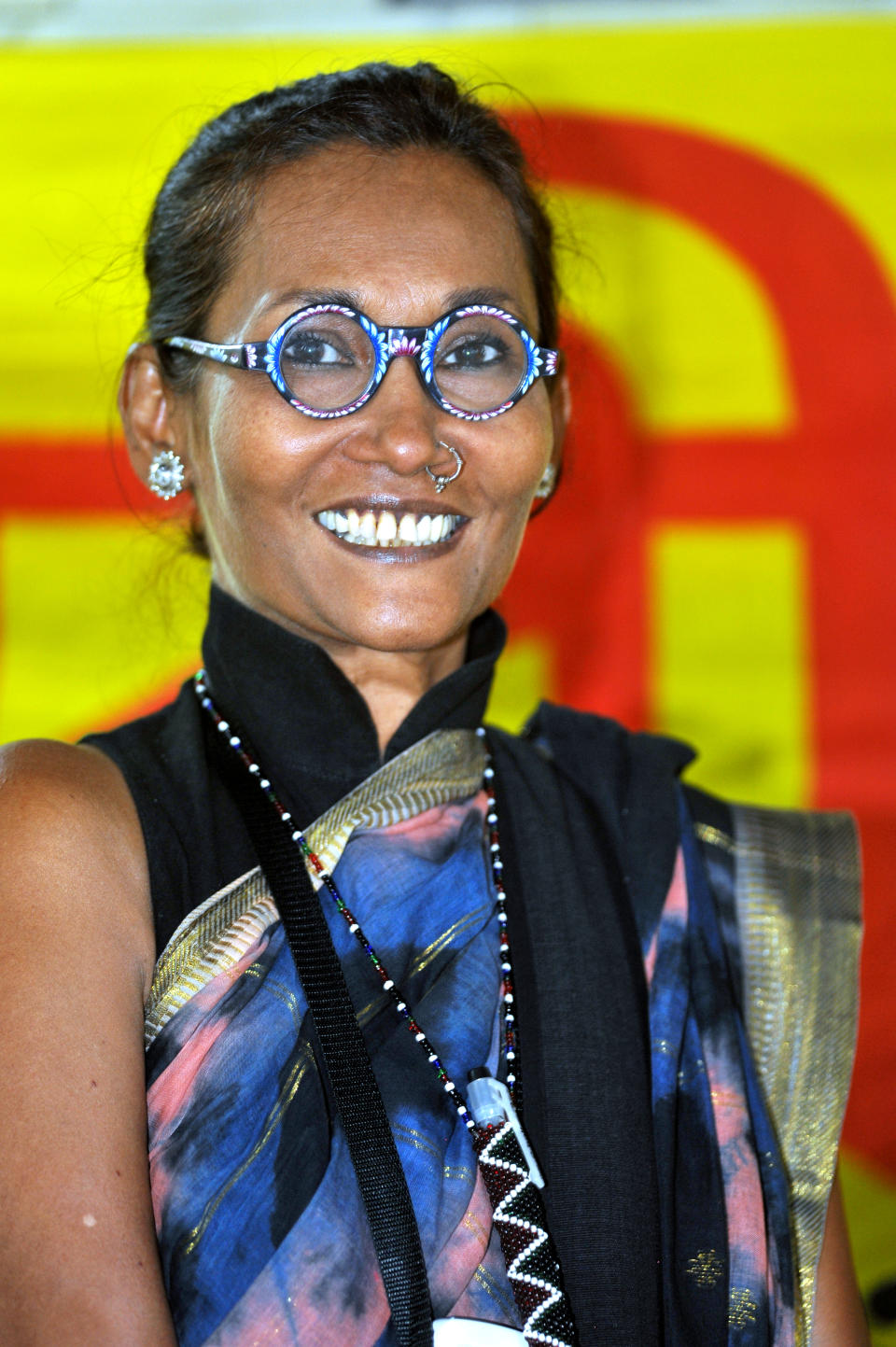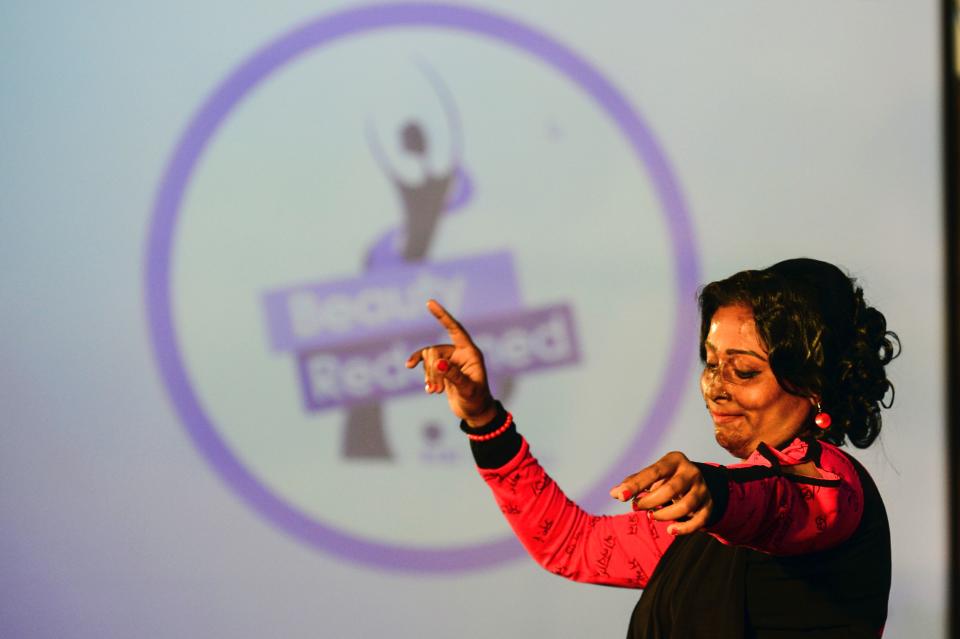The designer who finds inspiration in acid-attack survivors

Bangladesh-based model turned designer Bibi Russell has always looked different from everyone else. As a teenager in the 1960s in her native Bangladesh, a country where smallness and fair skin are highly prized attributes for women, she says, “I was tall, skinny, and dark.”
But those traits caught the attention of a modeling industry that, at the time, included very few women of color, propelling Russell, now 65, onto catwalks for top designers —including Kenzo, Giorgio Armani, and Karl Lagerfeld — and into the pages of major fashion magazines.
Those experiences, together with Russell’s dedication to uplifting women in Bangladesh, made her the perfect partner for NGO ActionAid’s fall “Survivors’ Runway” fashion show in London, which shined a spotlight on victims of acid attacks — violent crimes that involve throwing corrosive substances over someone’s face and body with the intent to maim and disfigure that person. Such attacks have become more widely known in the West following a spate of attacks in London in July, but they’ve long been a problem in countries including Bangladesh, India, Pakistan, and Colombia, with women often the prime targets and suffering devastating physical consequences and social stigma as a result.

The show, which took place in London in October, was a partnership with ActionAid and was reportedly so uplifting that the entire audience got up and danced along the runway with the models for the finale.
“Bibi Russell is a great person who has devoted herself to establishing the rights of the most vulnerable women in Bangladesh,” says Nuhur Nahan, an acid-attack survivor who now works for ActionAid Bangladesh, which has provided support and job training for fellow acid-attack survivors since 2004. “ActionAid Bangladesh asked her to take the lead in directing the fashion show, to design the clothes, groom the models, and give them more confidence.” The runway display, she explains, was an opportunity to reach a global audience and raise awareness of violence against women while also showcasing the capability, strength, and resilience of the survivors.
And a perfect fit was clothing from the company founded by Russell, Bibi Productions, after she retired from modeling in 1994. Built to promote the traditional fabrics of Bangladesh, it now employs 35,000 weavers from rural areas across the country, Russell says, and the eco-friendly, pure cotton handloom fabrics are ideal for the acid-attack survivors’ sensitive skin.

But when it came to convincing the six models and survivors that they could wear the clothing in front of an audience, on a runway, Russell was met with a challenge.
“I spent a lot of time with the girls as I had to really talk to them, motivate them, make them feel comfortable, and convince them that they are worthwhile, that they are beautiful,” Russell tells Yahoo Lifestyle. “I wanted them to know that the experience they’d gone through and survived had given them great strength and that they needed to show that strength to the world on the runway.”
And once the models heard that message, and believed it, there was no stopping them. “At first, they all were nervous, but after the event, they felt excited and they enjoyed it a lot,” Nahan says about participants, who included Ganga Dashi Sarkar, 49, attacked with acid by a man whose advances she rejected after her husband died, and Sonali Kathun, 13, who was just 18 months old when a neighbor, angry at her father over a land dispute, poured acid onto her and her parents. “Now they’re more confident and courageous.”
Bangladesh, which once had a notoriously high number of acid attacks, took a firm stance against them in 2002, with the introduction of a law controlling the open market sale of acid and another mandating strict punishment for perpetrators. However, implementation of laws still leaves much to be desired, Nahan says, and resolving those cases that do come to court takes a very long time.
In Russell’s view, the greatest challenge lies in changing peoples’ mindsets and attitudes — especially in rural Bangladesh — toward the survivors of acid attacks. While ActionAid and other organizations work hard to mainstream victims and counter the social and economic stigma they face, there is still a lot of work to be done, she says.

Russell is committed to doing this work, though, and to raising awareness on other key challenges Bangladesh faces, including illiteracy, education (or lack thereof), child trafficking, and the low value of a female child.
Russell spends a lot of time in very remote villages across South Asia: Recently she was in the Indian state of West Bengal, working with the state government on a project to stop female child trafficking. But she has an “open” office in Dhaka, Bangladesh’s capital city, where she welcomes everyone, especially the destitute, and her grassroots approach has made Russell a familiar figure to many in Bangladesh.
“They know me, they listen to me,” she says. “If I see a girl with dark skin, for example, I tell her what to do, I try and give her the confidence she needs. I want to give people the love, affection, and respect that they deserve.”
Russell — who is known for her colorful, hand-woven saris, traditional jewelry, and funky-framed eyeglasses — is an outspoken promoter of her country’s traditional crafts. The motto for both Bibi Productions and Russell herself is “fashion for development,” and she’s showcased the company’s hand-woven designs across the globe on multiple occasions, not just for the sake of selling them but to imbue the rural Bangladeshis working for her with a sense of pride and purpose in their heritage and handicrafts. She’s done the same in other parts of the world too, including India and Colombia, and she’s currently involved with Uzbekistan through a UNESCO project that’s looking to showcase that country’s fabric and ceramics on the global stage.
“If I’d wanted to have a career in pure fashion, I would have stayed in Europe and opened a shop,” Russell says. “But I believe in fashion for development, and I feel like I am a world citizen. There is so much beautiful heritage around the world to promote in such a way as to give people in different countries pride and dignity.”
Read More from Yahoo Lifestyle:
? Under Armour debuts new U.S. new speed-skating uniforms since 2014 Olympic suit controversy
? It’s couture week — here are the dresses we could see Meghan Markle wearing for her wedding
? The hidden messages in Dior’s couture show are somehow both sexist and feminist
Follow us on Instagram, Facebook, and Twitter for nonstop inspiration delivered fresh to your feed, every day.
